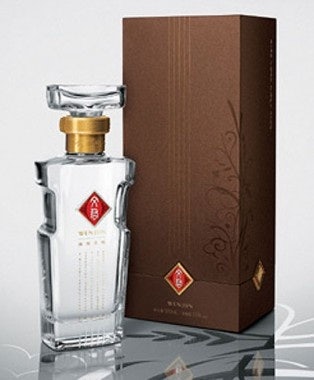Market Analysts See Foreign Investments In Chinese Traditional Liquor As Smart Move To Cash In On Emerging High-End Domestic Consumer#

Although most westerners may be unfamiliar with baijiu, the traditional spirit of China, drinkers within the country have been sipping the powerful, often tear-inducing alcohol for centuries. Less famous abroad than Japanese sake or Korean soju, two of its descendants, baijiu is most certainly big business in China, with the most expensive bottles often selling for more than $10,000 USD. This high-end spectrum, populated by rare bottles produced by only a handful of companies, has apparently garnered the attention of more than one foreign company looking to get a piece of the premium baijiu market, as Diageo bought a 43% share in baijiu producer Sichuan Chengdu Quanxing Group last year and, recently, LVMH Moet Hennessy acquired a 55% stake in one of China's top producers, Wenjun Distillery.
This acquisition should fit seamlessly with Louis Vuitton Moet Hennissey's broader China strategy. As we wrote earlier this week, LVMH is making a massive push into the Chinese market, buoyed by figures that indicate China has leapfrogged past traditional luxury markets like the United States this year and should surpass the Japanese market within five years. Acquiring a premium baijiu with real brand pedigree -- the first Asian brand to be owned by the LVMH group -- is being greeted as a gutsy move, as the high-end baijiu market is both exclusive and highly competitive. As Karen Cho writes, the acquisition of Wenjun has huge potential as incomes grow throughout China, but -- as uncharted territory -- presents LVMH with a host of new challenges:
“This is the first experience for the whole LVMH group owning an Asian brand,” says
Allan Hong
, development manager at Sichuan Wenjun Spirits Sales Company. “Because of the great potential in China, the whole group decided to run the Wenjun brand as a super-premium brand in China,” he adds.
The article goes on to discuss increased foreign interest in the high-end baijiu market, exemplified by Diageo's investment, and looks at some of the unique cultural challenges presented by the Chinese market, such as Chinese drinkers' preference for drinking baijiu at restaurants rather than nightclubs:
[A]s LVMH had always targeted modern nightspots, and no one was drinking bai jiu in those outlets, they had to shift its focus to Chinese restaurants.
This, Hong says, posed an immediate challenge, because LVMH’s sales force had relatively less experience with Chinese restaurants.
“So (in our) communication with our distributors, with restaurant owners, we have made a lot of efforts to understand their needs and (also) what their consumers want in those kind of outlets.”
Although LVMH will undoubtedly face massive difficulties in this vast yet complex market, the combined brand power of LVMH and Wenjun names should give the new joint venture a leg up in the market. As Allan Hong says in the article, it is all about serving the lucrative but mysterious niche market of super-premium baijiu drinkers: “[With this joint venture,] we want to capture this opportunity; we want to get a niche market that only belongs to ourselves.”